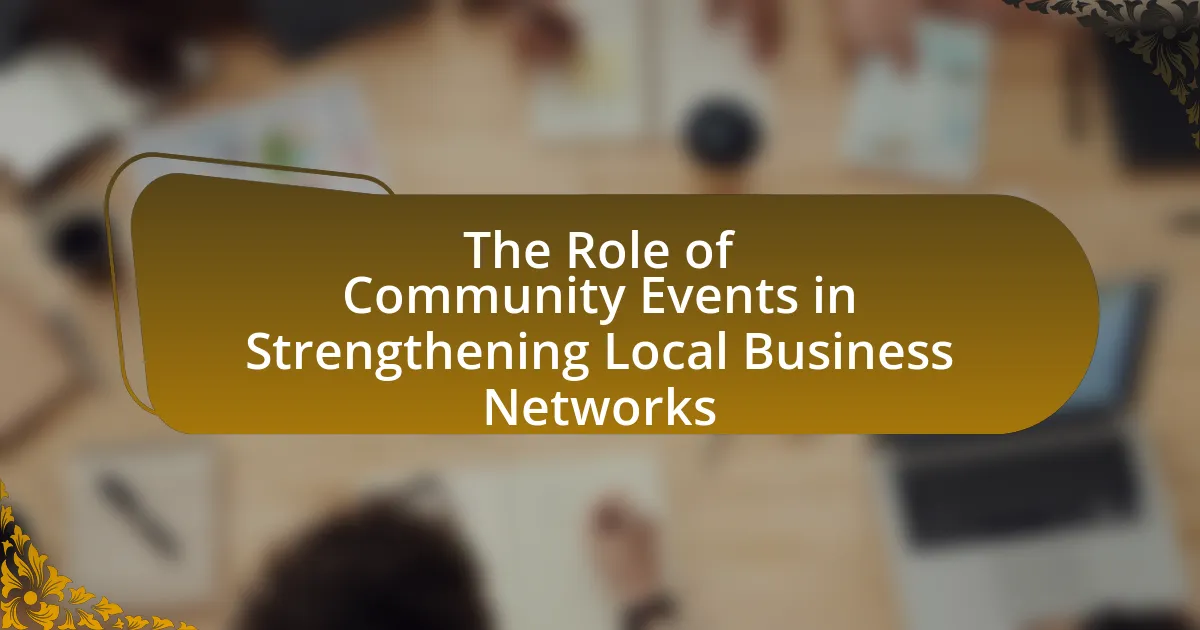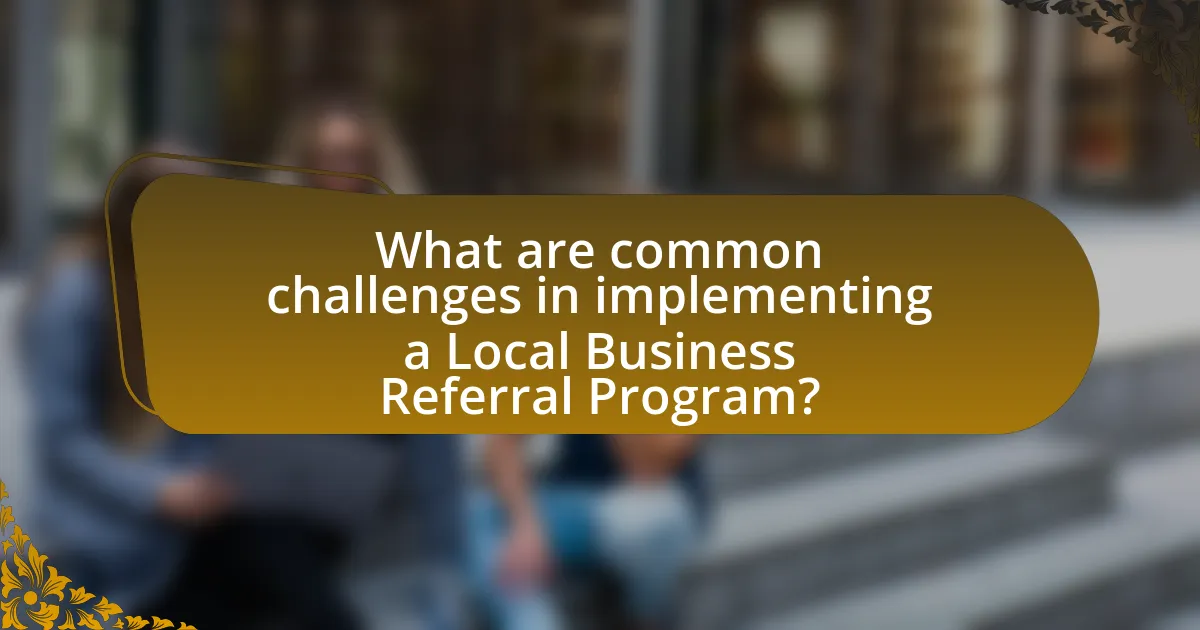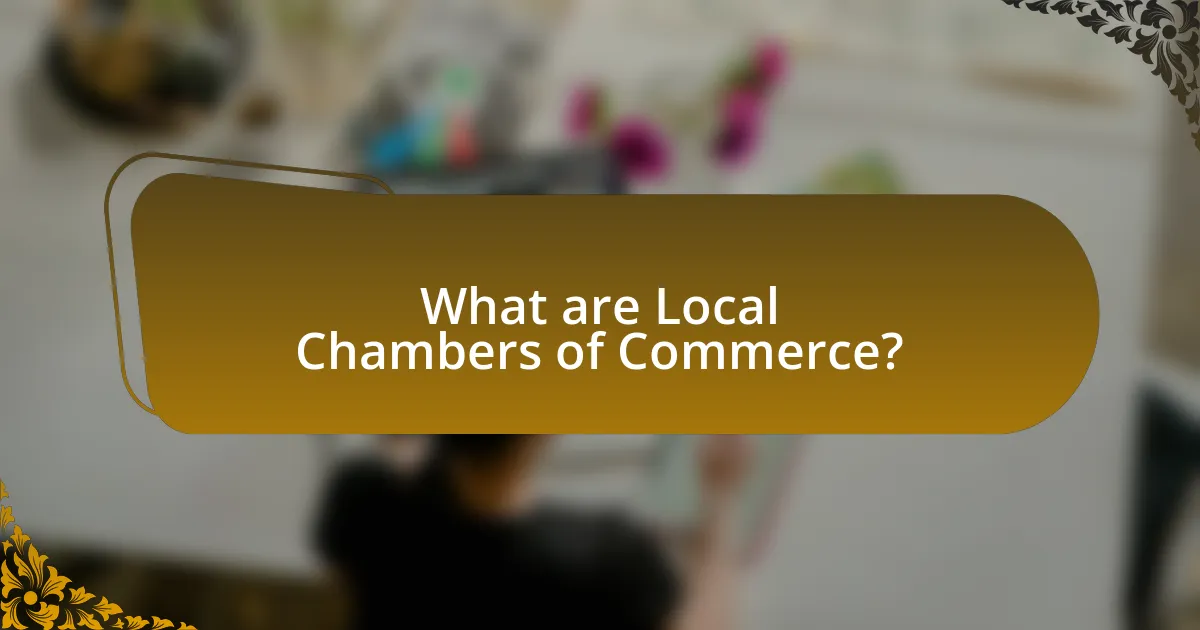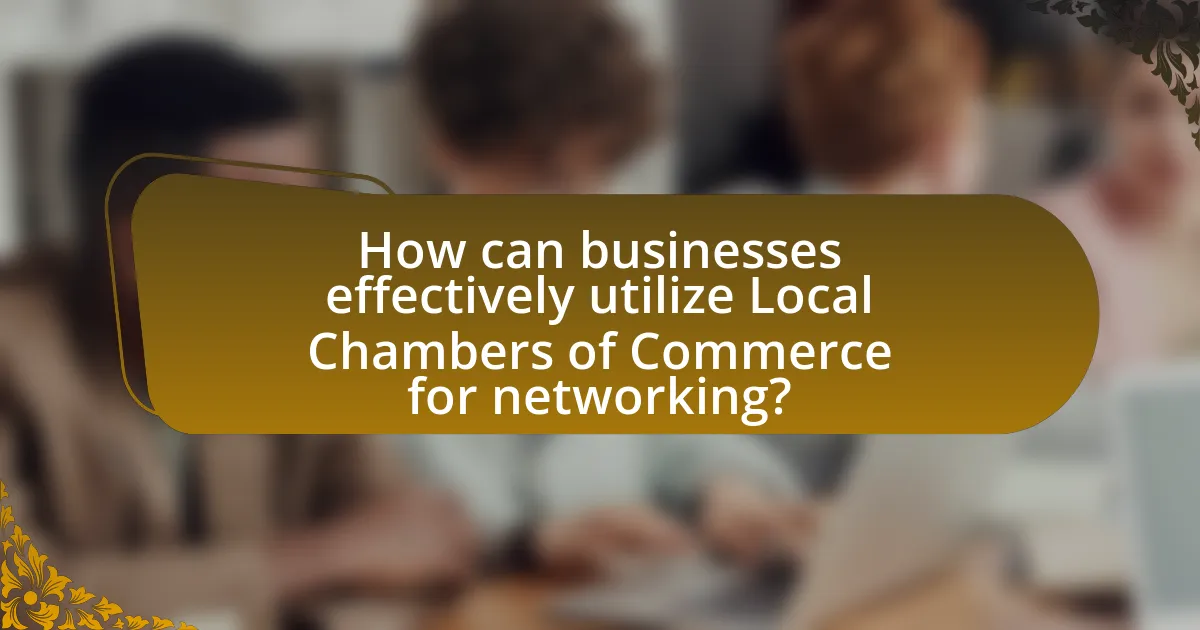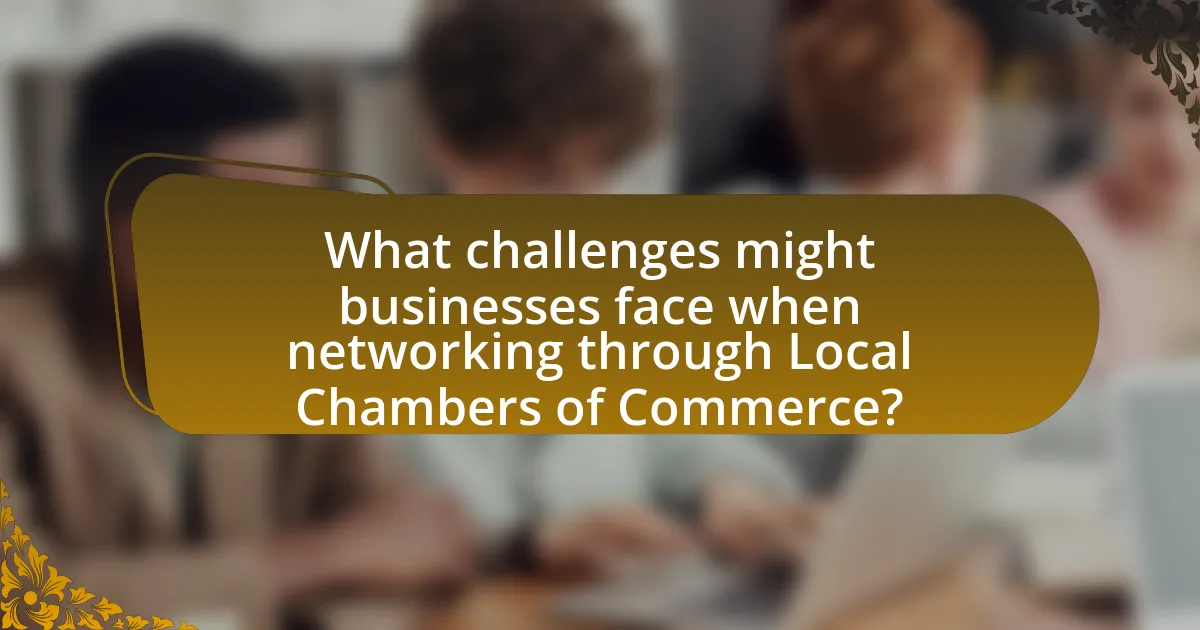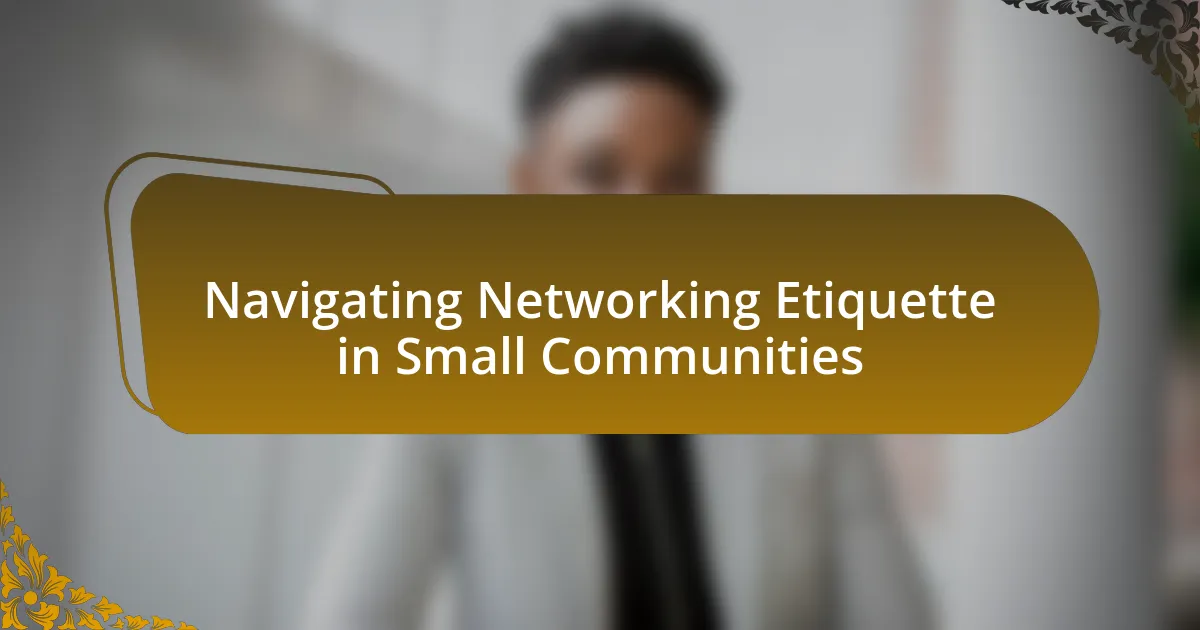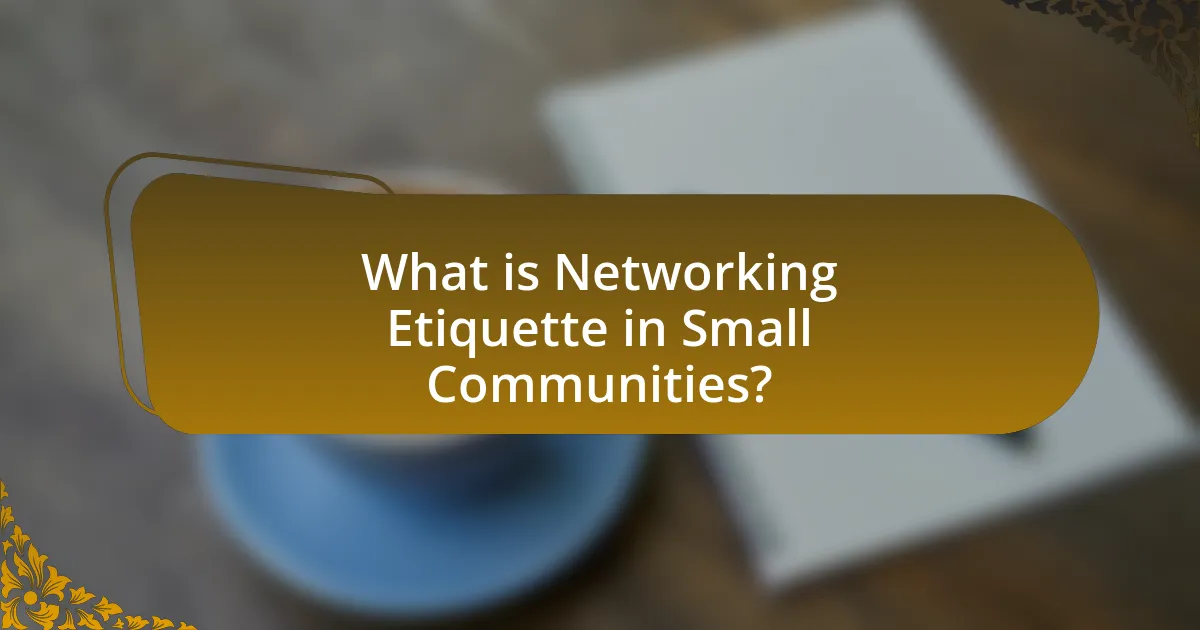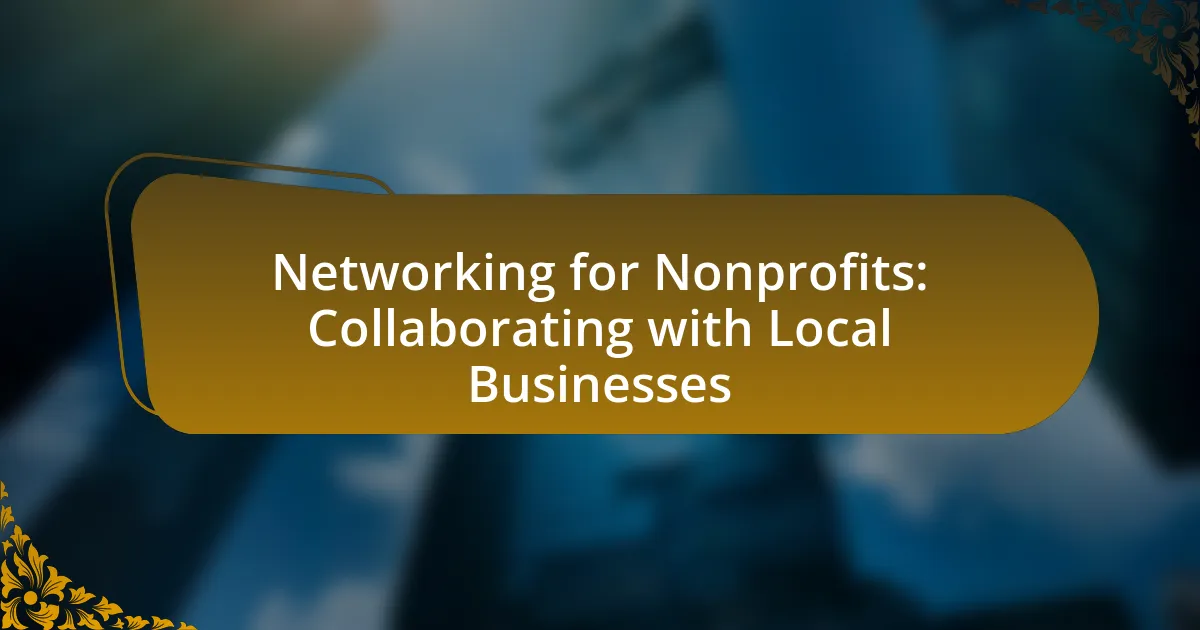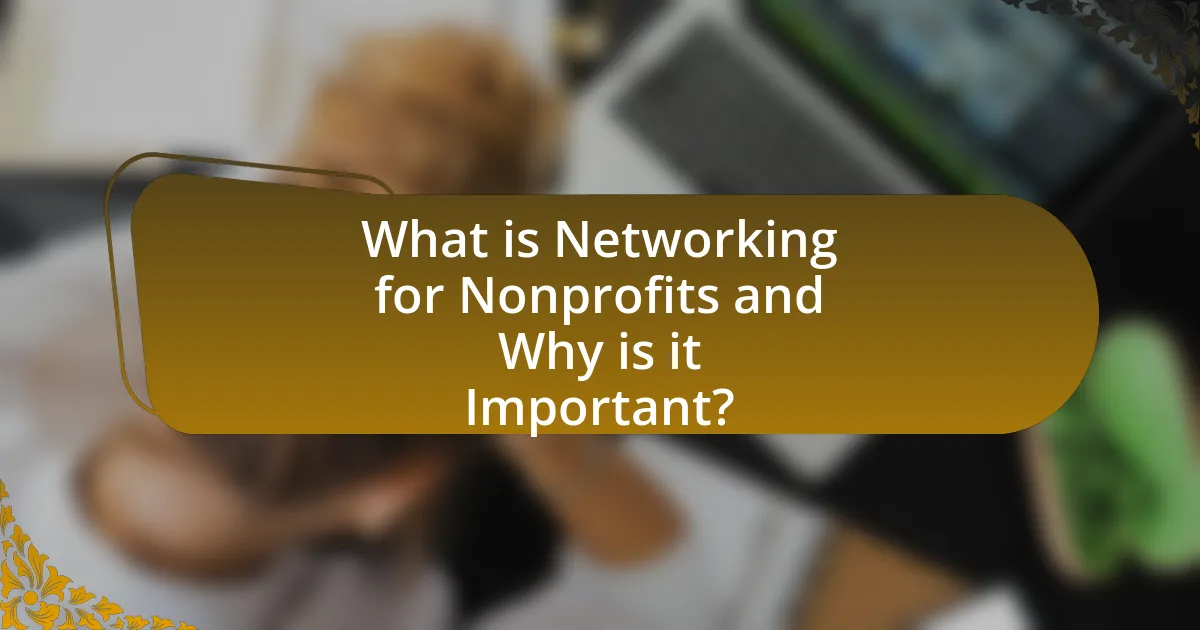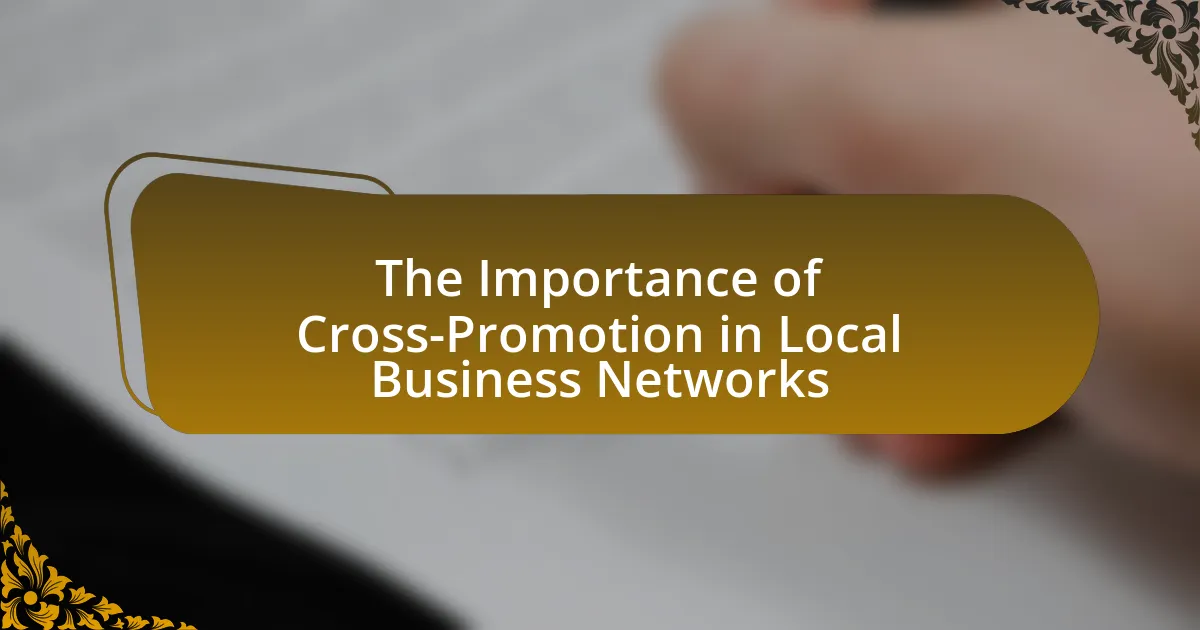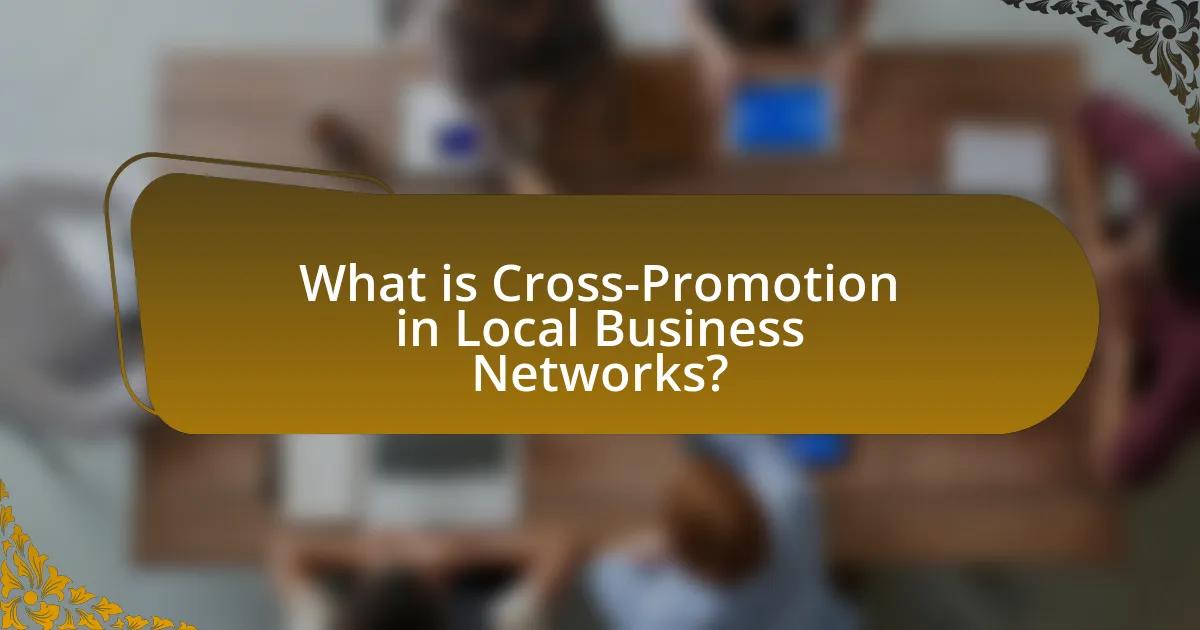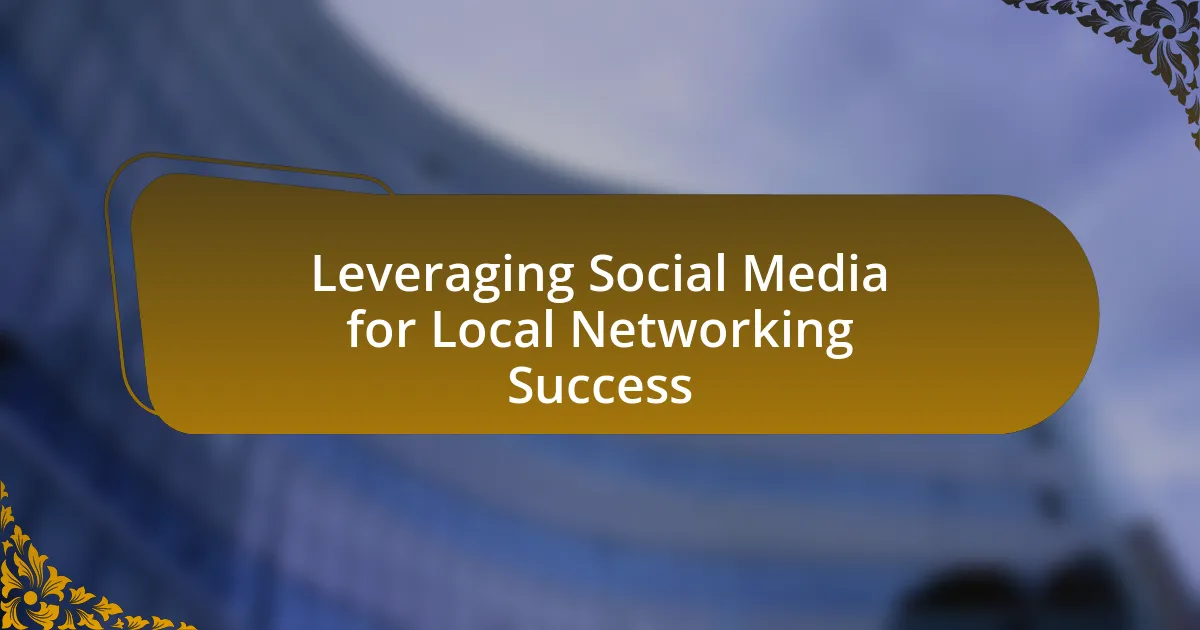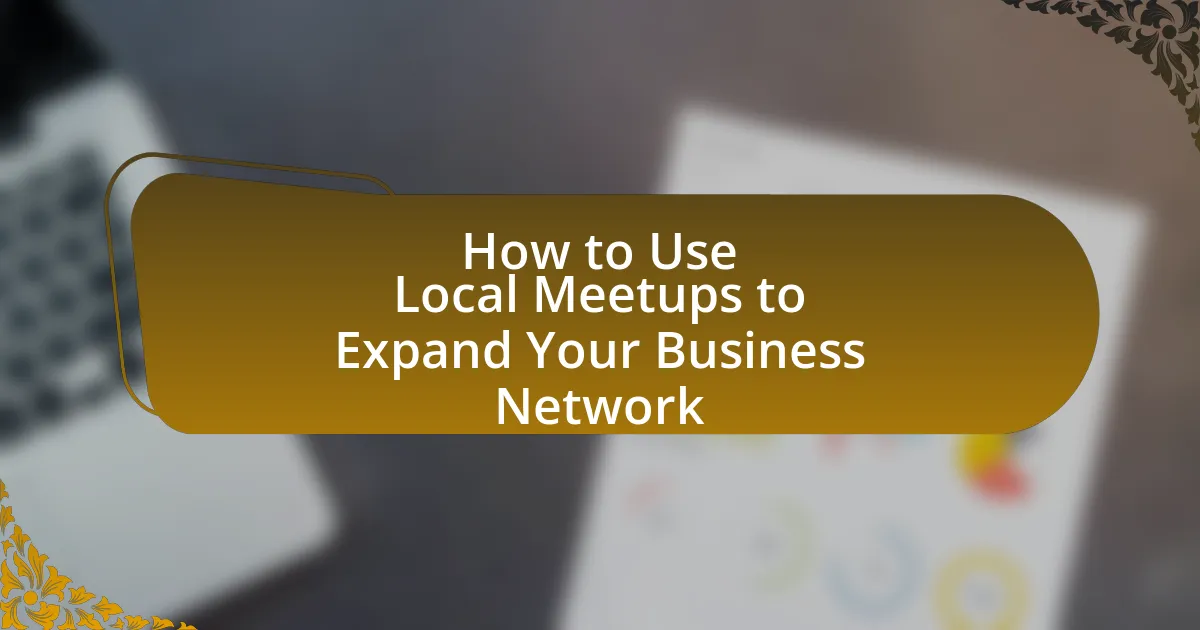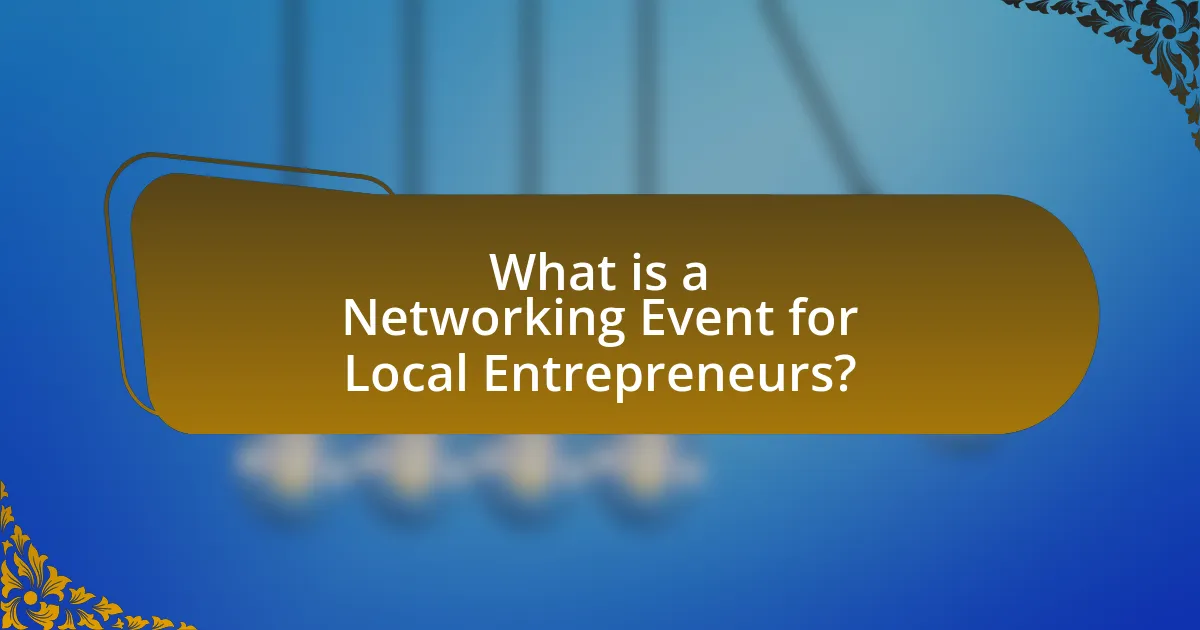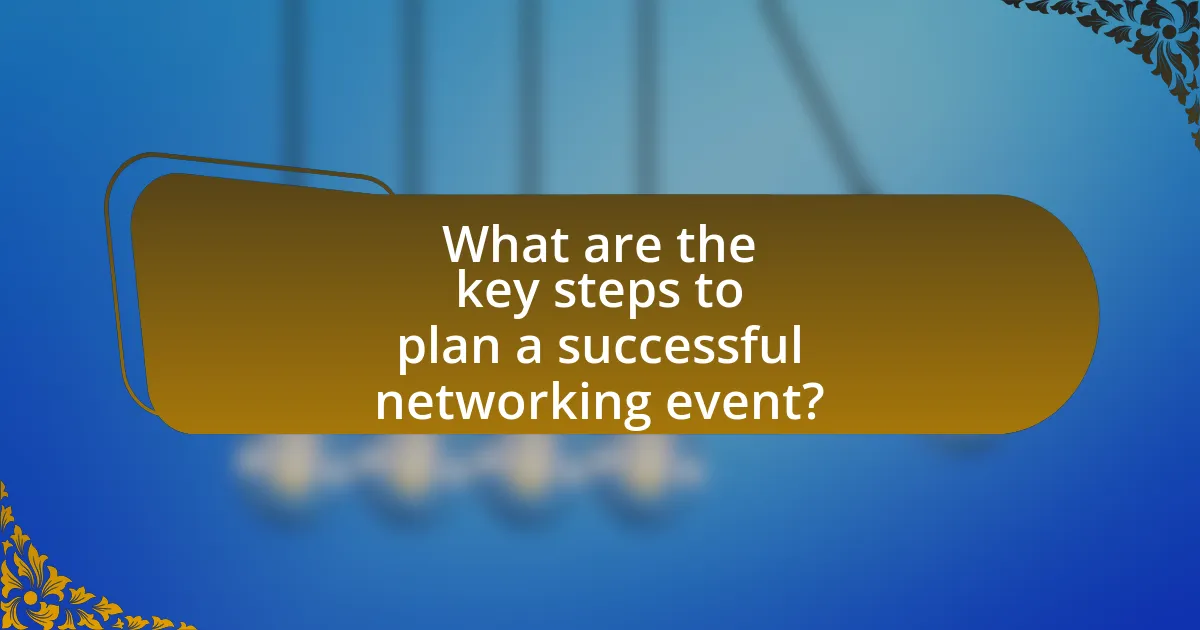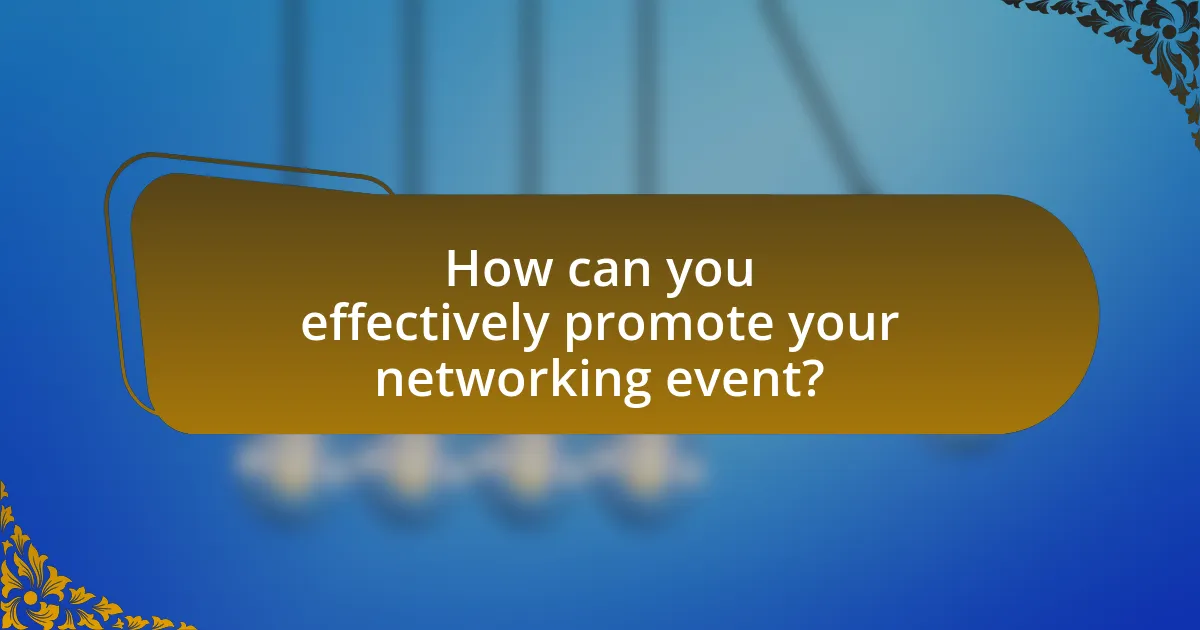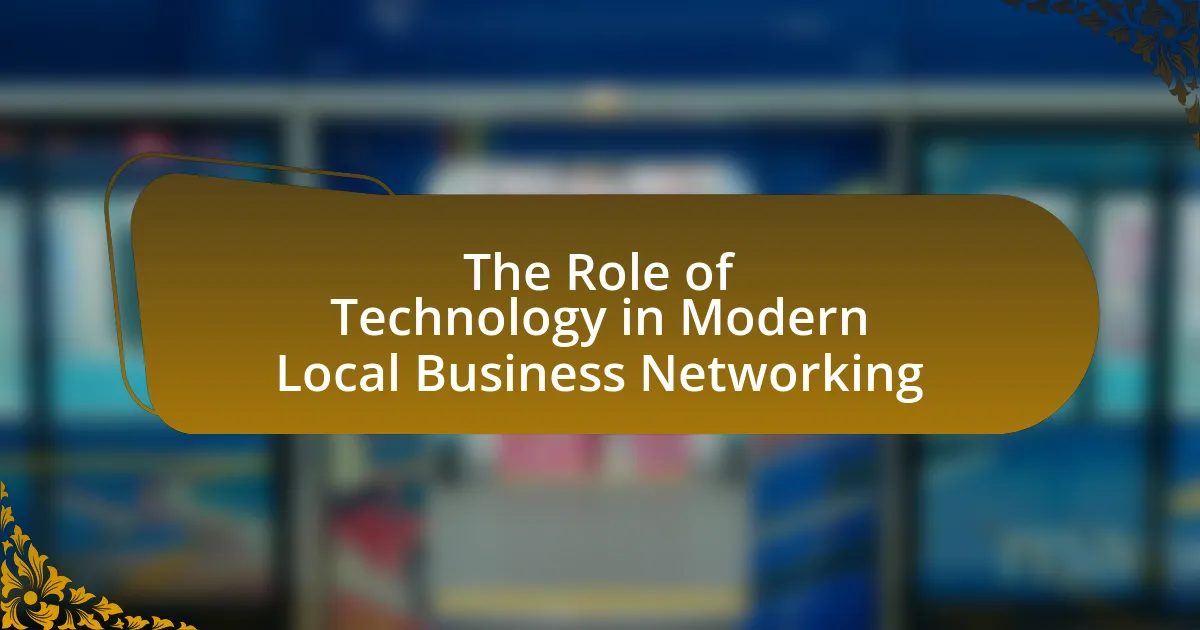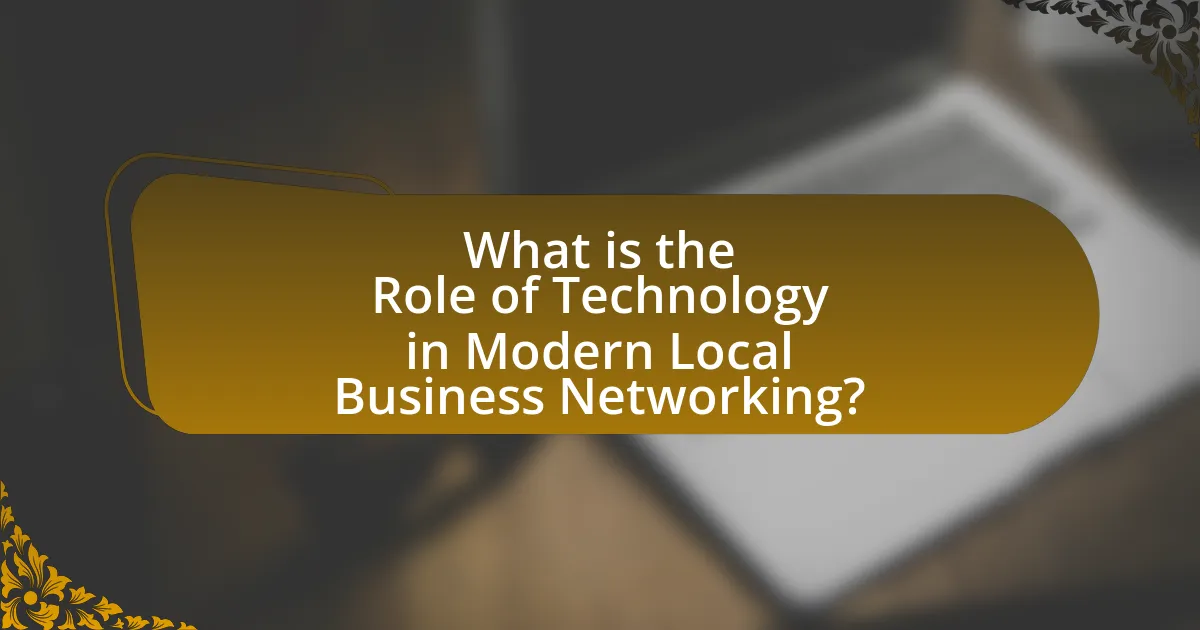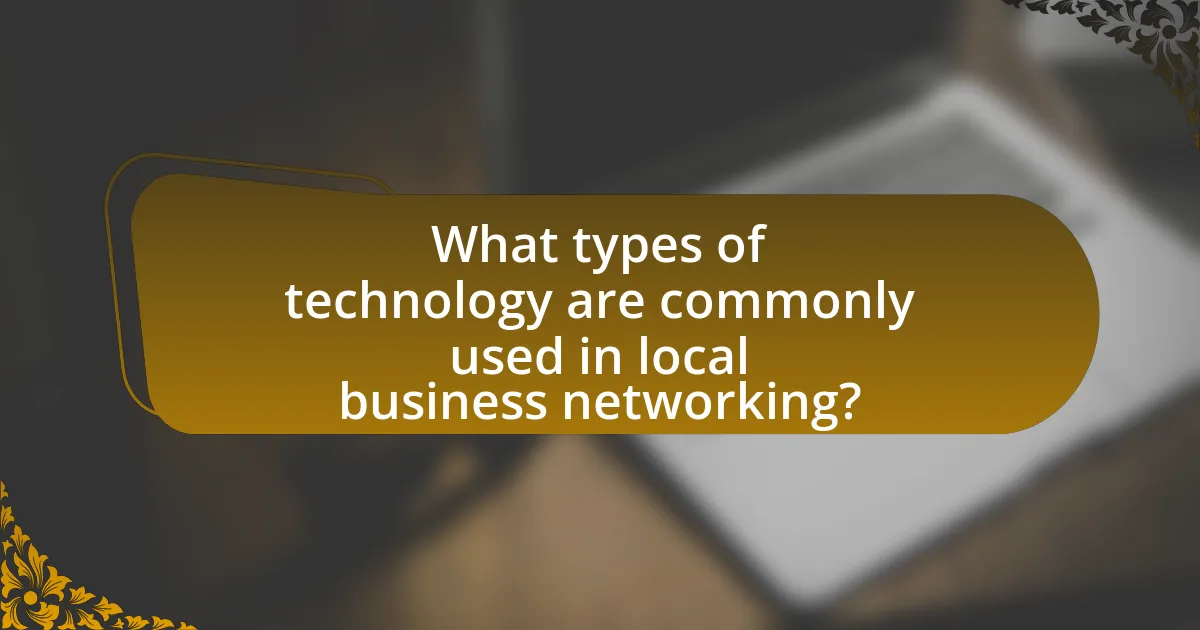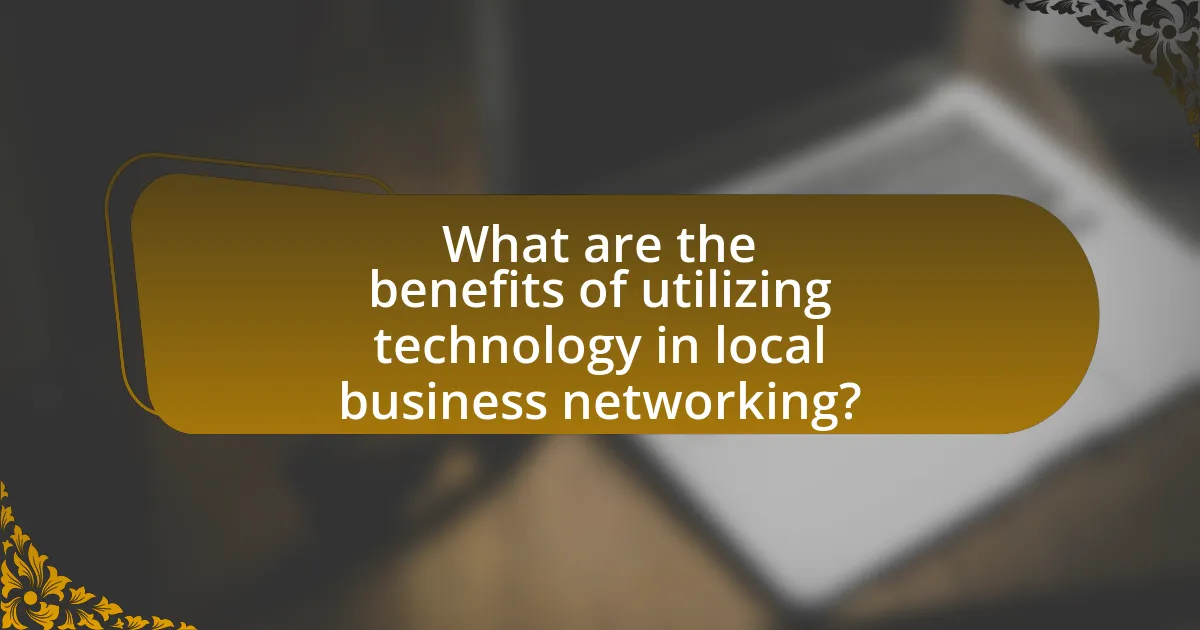Community events play a vital role in strengthening local business networks by facilitating connections, fostering collaboration, and enhancing visibility among entrepreneurs. These events provide platforms for businesses to showcase their products and services, leading to increased customer engagement and potential partnerships. Effective types of community events include networking events, workshops, and trade shows, which encourage collaboration and resource sharing among local businesses. Additionally, community events stimulate local economies by attracting visitors and increasing consumer spending, while also presenting challenges such as financial constraints and time limitations for participation. By leveraging resources and feedback, local businesses can maximize their involvement in community events, ultimately contributing to a more robust local economy.
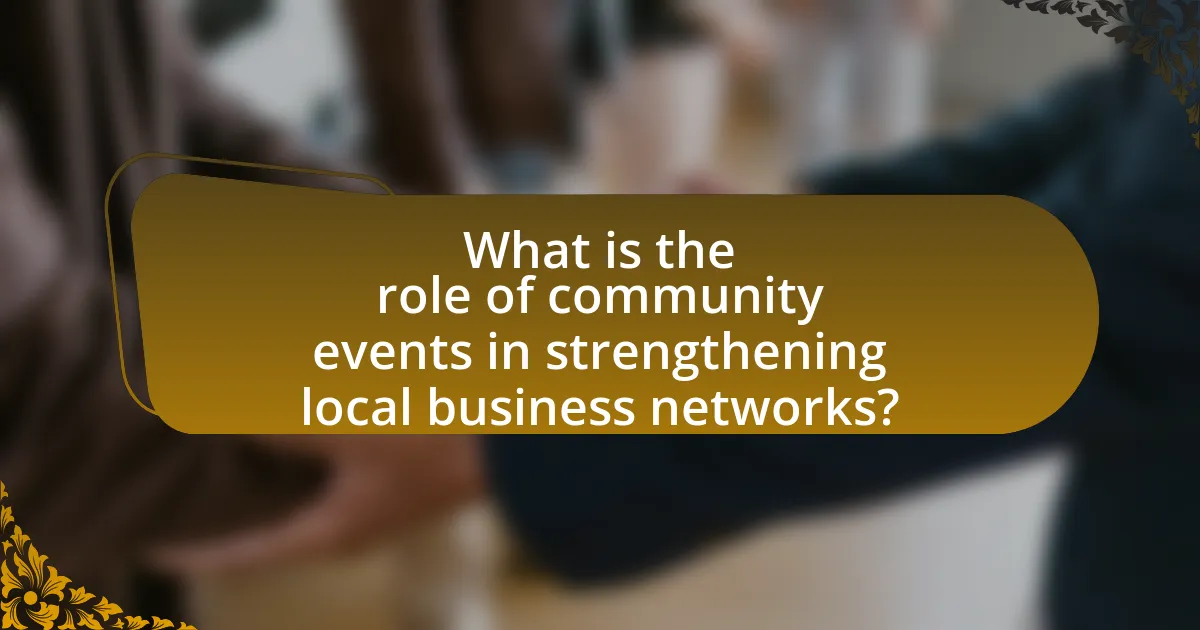
What is the role of community events in strengthening local business networks?
Community events play a crucial role in strengthening local business networks by facilitating connections among entrepreneurs, fostering collaboration, and enhancing visibility. These events provide a platform for local businesses to showcase their products and services, which can lead to increased customer engagement and potential partnerships. For instance, a study by the U.S. Small Business Administration found that businesses participating in community events reported a 20% increase in local customer interactions. Additionally, networking opportunities at these events allow business owners to share resources, knowledge, and best practices, ultimately contributing to a more robust local economy.
How do community events facilitate networking among local businesses?
Community events facilitate networking among local businesses by providing a platform for direct interaction and relationship building. These events create opportunities for business owners to meet face-to-face, share resources, and collaborate on initiatives. For instance, a study by the U.S. Small Business Administration found that 70% of small businesses reported increased partnerships and collaborations as a result of participating in local events. Additionally, community events often attract a diverse audience, allowing businesses to showcase their products and services, thereby enhancing visibility and fostering connections that can lead to future business opportunities.
What types of community events are most effective for business networking?
Networking events, workshops, and trade shows are the most effective types of community events for business networking. Networking events facilitate direct interactions among professionals, allowing for relationship building and collaboration opportunities. Workshops provide skill development while fostering connections among participants, enhancing both personal and professional networks. Trade shows offer businesses a platform to showcase their products and services, attracting potential clients and partners, which can lead to valuable business relationships. According to a study by the Event Marketing Institute, 84% of participants in trade shows reported that they made valuable connections that led to business opportunities.
How do community events encourage collaboration among local businesses?
Community events encourage collaboration among local businesses by providing a platform for networking and partnership opportunities. These events facilitate direct interactions between business owners, allowing them to share resources, ideas, and strategies. For instance, joint promotions or co-hosted events can emerge from these interactions, leading to increased visibility and customer engagement for all involved. Research indicates that businesses participating in community events often report enhanced relationships and collaborative projects, which can lead to economic benefits such as increased sales and customer loyalty.
Why are community events important for local economies?
Community events are important for local economies because they stimulate economic activity and foster community engagement. These events attract visitors, which increases foot traffic to local businesses, leading to higher sales and revenue. For instance, a study by the National Endowment for the Arts found that community festivals can generate significant economic impact, with some events bringing in over $1 million in revenue for local businesses. Additionally, community events create networking opportunities for local entrepreneurs, enhancing collaboration and support among businesses. This interconnectedness strengthens the local economy by promoting a vibrant business ecosystem.
How do community events contribute to local economic growth?
Community events contribute to local economic growth by increasing consumer spending and fostering business networking opportunities. These events attract visitors, which boosts sales for local businesses, as evidenced by a study from the National Endowment for the Arts indicating that arts and cultural events can generate significant economic activity, with attendees spending an average of $31.47 per person, excluding the cost of admission. Additionally, community events create platforms for local businesses to collaborate, share resources, and build relationships, enhancing their visibility and customer base. This interconnectedness among businesses leads to a more robust local economy, as demonstrated by research from the American Planning Association, which found that communities with active event calendars experience higher levels of economic vitality.
What impact do community events have on consumer engagement with local businesses?
Community events significantly enhance consumer engagement with local businesses by fostering direct interactions and building relationships. These events create opportunities for local businesses to showcase their products and services, leading to increased visibility and foot traffic. For instance, a study by the National Main Street Center found that 75% of consumers are more likely to shop at a business they encountered during a community event. Additionally, community events often encourage local spending, as participants are more inclined to support businesses that contribute to their community. This engagement not only boosts sales but also strengthens brand loyalty, as consumers develop a sense of connection with the businesses involved.
What challenges do local businesses face in participating in community events?
Local businesses face several challenges in participating in community events, including limited financial resources, time constraints, and lack of awareness. Financially, many small businesses operate on tight budgets, making it difficult to allocate funds for event sponsorships or participation fees. Time constraints arise as business owners often juggle multiple responsibilities, leaving little time to engage in community activities. Additionally, a lack of awareness about upcoming events or their potential benefits can prevent local businesses from participating. According to a survey by the National Federation of Independent Business, 60% of small business owners reported that financial limitations hindered their ability to engage in community events.
How can local businesses overcome barriers to participation in community events?
Local businesses can overcome barriers to participation in community events by actively engaging in collaboration with event organizers and leveraging local networks. By forming partnerships with other businesses and community organizations, local businesses can share resources, reduce costs, and enhance visibility. For instance, a study by the National Federation of Independent Business found that businesses that collaborate with local chambers of commerce or community groups experience a 20% increase in event participation. Additionally, offering incentives such as discounts or promotions during events can attract more customers and encourage participation. This approach not only fosters a sense of community but also strengthens local business networks, ultimately leading to increased economic resilience.
What resources are available to support local businesses in community event participation?
Local businesses can access various resources to support their participation in community events, including grants, sponsorship opportunities, and networking platforms. Local government agencies often provide grants specifically aimed at enhancing community engagement, which can be utilized by businesses to fund their event participation. Additionally, local chambers of commerce frequently offer sponsorship opportunities that allow businesses to gain visibility while supporting community initiatives. Networking platforms, such as local business associations, facilitate connections among businesses and event organizers, enabling collaboration and resource sharing. These resources collectively enhance the ability of local businesses to engage in community events, fostering stronger business networks and community ties.
How can community events be effectively organized to benefit local businesses?
Community events can be effectively organized to benefit local businesses by fostering collaboration between business owners and event planners, ensuring that the events are tailored to meet the needs of the community and the businesses involved. Engaging local businesses as sponsors or vendors creates a direct economic impact, as they gain visibility and access to potential customers. For instance, a study by the National Main Street Center found that community events can increase foot traffic by up to 30%, directly benefiting local retailers and service providers. Additionally, incorporating local products and services into the event can enhance the community’s sense of pride and encourage attendees to support local businesses.
What strategies can be employed to maximize business participation in community events?
To maximize business participation in community events, businesses should engage in strategic partnerships with local organizations and actively promote their involvement through targeted marketing efforts. By collaborating with community groups, businesses can leverage existing networks to reach a wider audience, enhancing visibility and encouraging participation. For instance, a study by the National Federation of Independent Business indicates that businesses that partner with local nonprofits see a 20% increase in community engagement. Additionally, utilizing social media platforms to share event details and success stories can further attract participation, as 73% of consumers are influenced by social media when making purchasing decisions.
How can feedback from local businesses improve future community events?
Feedback from local businesses can significantly enhance future community events by providing insights into the preferences and needs of the business community. This feedback allows event organizers to tailor activities, marketing strategies, and logistical arrangements to better align with local business interests, thereby increasing participation and satisfaction. For instance, a survey conducted by the National Association of Counties found that 75% of local businesses reported a desire for more networking opportunities at community events, indicating that incorporating such elements could lead to greater engagement. By actively seeking and implementing this feedback, organizers can create events that not only attract more attendees but also foster stronger relationships between businesses and the community.
What are the best practices for leveraging community events to strengthen business networks?
The best practices for leveraging community events to strengthen business networks include actively participating in local events, fostering relationships through networking opportunities, and showcasing products or services. Engaging in community events allows businesses to connect with potential clients and partners, enhancing visibility and credibility. Research indicates that 70% of business professionals believe networking is crucial for career success, highlighting the importance of building relationships in a community setting. Additionally, hosting or sponsoring events can position a business as a leader in the community, further solidifying connections and trust among local stakeholders.
How can businesses measure the success of their participation in community events?
Businesses can measure the success of their participation in community events through metrics such as increased brand awareness, customer engagement, and sales growth. For instance, tracking social media mentions and interactions before and after the event can provide insights into brand visibility. Additionally, collecting feedback through surveys from event attendees can quantify customer engagement levels. Sales data analysis post-event can reveal any direct impact on revenue, with studies indicating that businesses participating in community events often see a 20% increase in local sales within three months following the event. These metrics collectively offer a comprehensive view of the effectiveness of participation in community events.
What role does social media play in promoting community events for local businesses?
Social media serves as a crucial tool for promoting community events for local businesses by enhancing visibility and engagement. It allows businesses to reach a broader audience quickly, facilitating event promotion through targeted advertising and organic sharing. For instance, a study by the Pew Research Center indicates that 69% of adults in the U.S. use social media, providing a vast platform for local businesses to connect with potential attendees. Additionally, social media enables real-time interaction, allowing businesses to engage with their community, share updates, and encourage participation, which can lead to increased foot traffic and sales during events.
What practical tips can local businesses implement to enhance their networking through community events?
Local businesses can enhance their networking through community events by actively participating in and sponsoring these events. Engaging in community events allows businesses to showcase their products and services, thereby increasing visibility and fostering relationships with potential customers and other local businesses. For instance, a study by the National Federation of Independent Business found that 70% of small businesses that engage in community events report increased customer loyalty and brand recognition. Additionally, businesses should consider collaborating with other local organizations to co-host events, which can expand their reach and create a more diverse networking environment. By leveraging social media to promote their involvement in these events, businesses can further enhance their networking opportunities and connect with a broader audience.
